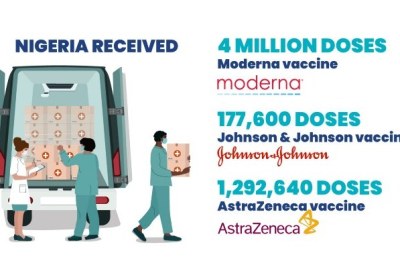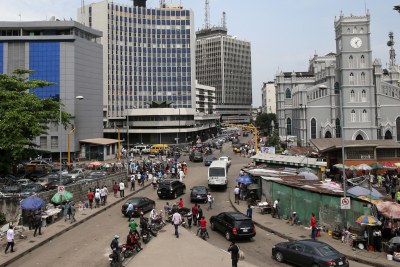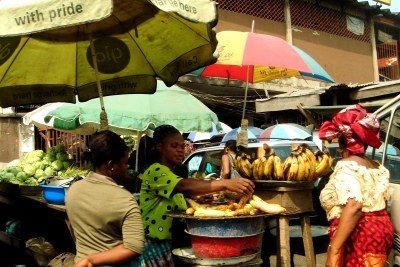-
Nigeria: Country's Covid-19 Economic Plan Has Delivered Disappointing Results - Here's Why
The Conversation Africa, 12 October 2021
Over a year ago, Nigeria's President Muhammadu Buhari launched an economic plan designed to mitigate the impact of the COVID-19 pandemic. Read more »
-
Nigeria: Country's Trade Cost Too High to Attract Investments - Okonjo-Iweala
This Day, 12 October 2021
The Director-General of the World Trade Organization (WTO), Dr. Ngozi Okonjo-Iweala, has lamented that cost of Nigeria's trade is too high to attract foreign investors. Read more »
-
Nigeria: El-Rufai Presents N233 Billion Kaduna 2022 Budget Proposal to State Assembly
Premium Times, 13 October 2021
Governor El-Rufai proposes in the budget a capital expenditure of N146 billion and recurrent spending of N87.6 billion. Read more »
-
Nigeria: Nigeria's Economy Worst in 38 Years - Reps
Vanguard, 29 September 2021
The House of Representatives on Wednesday declared the current economic situation of Nigeria, worst since 1983. Read more »
-
Nigeria: Nigeria Must Decisively Tackle Debt Challenges, Says AfDB's Adesina
Vanguard, 12 October 2021
President of African Development Bank, AfDB, Akinwumi Adesina, yesterday asked the federal government to decisively resolve the nation's debt challenges to trigger economic growth. Read more »
-
Nigeria: IMF Raises Nigeria's Economic Growth Projection to 2.6%
This Day, 13 October 2021
The International Monetary Fund (IMF) has raised Nigeria's 2021 economic growth forecast marginally from the 2.5 per cent it had previously estimated to 2.6 per cent. Read more »
This is Why Nigeria's Covid-19 Economic Plan Disappoints
Determined to blunt the economic trauma of Covid-19 and minimise its impact on poverty, unemployment, insecurity, and violence, Nigeria's President Muhammadu Buhari launched an economic plan designed to mitigate the impact of the pandemic.
Since the outbreak of the pandemic, Nigeria recorded 208,154 cases of infection and 2,756 deaths as of October 13, 2021. The economic effects were devastating. Economic growth turned negative in 2020, unemployment and poverty rates increased, and companies went out of business, writes Stephen Onyeiwu for The Conversation.
Prior to the Covid-19 outbreak, the Nigerian economy faced a lingering crisis for years with inflation reaching a four-year high by February 2021. With flat economic growth and rising inflation, Nigeria risks running into what economists refer to as "stagflation". Stagflation is a lethal combination of high unemployment and inflation rates. Rising food prices and steep depreciation of the Nigerian currency are the main causes of inflation in Nigeria. The coronavirus pandemic that hit in 2020, slashing the country's oil revenue and lead to businesses shutting down and the retrenchment of employees.
Nigeria is yet to see a recovery from the Covid-19 pandemic and the slump in the oil price, a commodity on which the country's economy rests. The World Bank estimates that 11 million Nigerians will be pushed into poverty by 2022, in addition to the 100 million (out of 200 million people in the country) who are already classified as poor.
InFocus
-
The United Nations Development Programme and the National Bureau of Statistics, has said that 20% of Nigeria's full-time workforce lost employment during the Covid-19 pandemic in ... Read more »
-
After the successful deployment of the first round of vaccines received from the COVAX facility in March 2021, Nigeria has received its second batch of vaccines from countries ... Read more »
-
President Muhammadu Buhari has said the government plans to borrow more than U.S.$10 billion to help finance the 2022 budget of nearly U.S.$40 billion. He added that the two ... Read more »
-
Low to middle income countries with a debt stock of over U.S.$8.7 trillion in 2020 should be eligible for debt relief, according to the World Bank. The Bank has urged debit ... Read more »








